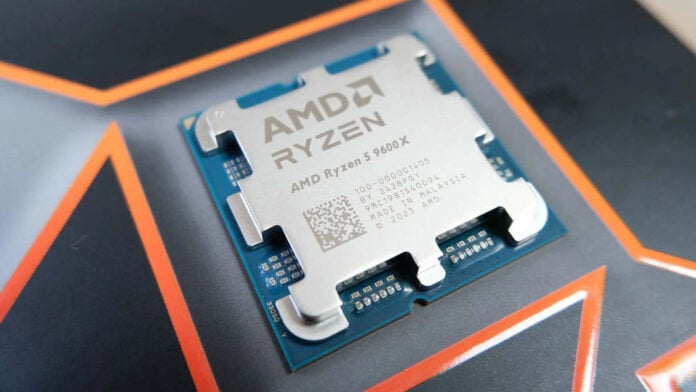Reports suggest AMD is working on a new AGESA patch that increases the TDP of its mid-range Ryzen 9000 processors. The aim is to give these power-starved chips more headroom to stretch their legs and develop their full potential.
According to @g01d3nm4ng0 on X, AMD will increase the Ryzen 5 9600X and Ryzen 7 9700X TDP from 65W to 105W. This change will take place with the AGESA 1.2.0.1a BIOS update. The brand seems to have come to the same conclusion as many reviews, in the fact that these Ryzen chips – especially the 9700X – hit the 65W TDP wall very quickly. In our tests, this meant a 4.634GHz all-core frequency, which is low by today’s standards, especially compared to last-gen Zen 4 equivalents.
Unlike Zen 4 Ryzen 7000 CPUs, which start high while giving you the possibility to select an ECO mode, Ryzen 9000 is going the other way around due to the lacklustre overall performance. It seems that AMD went too conservative with the power budget at the expense of performance – in a way, the opposite of Intel.
Jokes aside, while this approach is not systematically bad, the way AMD advertised it is. The brand claimed double-digit IPC gains where in reality you had 3% or 4% uplift. Yes, some apps did benefit from Zen 5, but most games didn’t. A big issue since these chips are targeting gamers.
Though not a generality, AMD seems to be lost with many of its recent product releases. Just to name a few, we had Radeon 7000 GPUs with high launch prices that were so unappealing AMD was forced to discount them almost immediately. Then, we had the last-minute price change of the RX 7600. Not to forget FSR 3 Frame Generation, which AMD released in an unfinished state.
While not as big as Intel’s recent issues, we hope AMD too wakes up and takes things in hand. The brand already offers some of the best CPUs on the market, all it needs is to fix its product launches.


